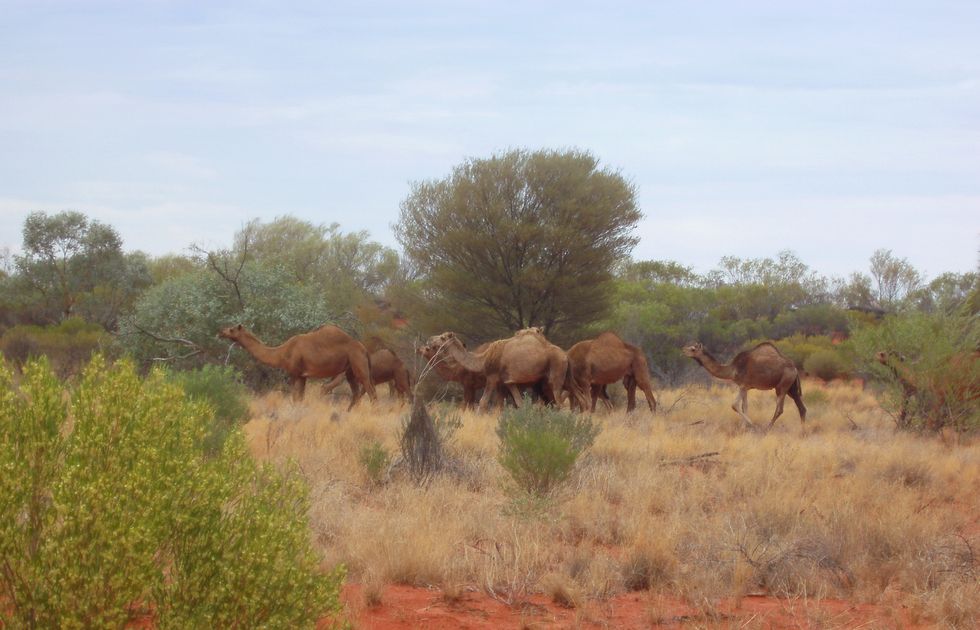Prolonged bush fires in Australia have not only killed 25 people and wiped out approximately 1 billion animals, but have also caused serious droughts throughout the country. The Aṉangu Pitjantjatjara Yankunytjatjara Aboriginal land area (APY) is one particular area suffering from the catastrophic effects of the bush fire droughts.
The bush fires have been depleting water sources in rural areas since September 2019, creating large masses of animals to migrate in search of water. APY residents complain of one particular animal species coming into populated areas, destroying property, and exhausting any available water sources: camels.
Government officials have turned their attention to the dehydrated animals, opting to take drastic measures to prevent further harm to APY. Instead of attempting to relocate the animals, Australia's department of environment and water will send marksmen to kill nearly 10,000 camels trapped in APY. The marksmen have also been ordered to kill feral horses searching for water.
The decision to kill the animals was made by APY officials. In a statement released on Facebook, Richard King, a head official, said: "Given ongoing dry conditions and the large camel congregations threatening all of the main APY communities and infrastructure, immediate camel control is needed."
There is no record of an alternative solution being proposed; King and other officials believe that the killing of 10,000 camels is the only resolution to maintaining stable water sources within APY. They claim that this decision will bring relief that APY desperately needs.
Despite the fact that camels are not an endangered species, the severe impact of the bush fires on their habitat, as well as the general environment in Australia, could threaten their species. The eradication of 10,000 camels equals an estimated population loss of 1 percent. This seemingly small number doesn't include the number of camels that have already died from the bush fires, and the number of camels that will die from dehydration, starvation, and smoke inhalation.
APY officials attribute the camel-killing decision not only to the safety of civilians but also to a little-known fact: one camel can produce approximately 1 ton of carbon dioxide per year. An average human will produce around two pounds of carbon dioxide per year. This may seem like a reasonable justification to kill the camels huddled in APY, but the Australian bushfires have emitted over 350 million tons of carbon dioxide, a staggering number when compared to the one million tons from the camel population. For perspective, the bush fires are producing 350% more carbon dioxide than the camels.
While the intentions of the APY are clear, protect the human population above all else, their solution is quite ambiguous in its impact and ethical backing. With millions of animal species either endangered or at risk of becoming endangered, the killing of 10,000 camels will only add to the problem. It seems as though the APY has neglected to search for another solution for herding the camels out of the area, and instead has chosen to place a Band-Aid on a gaping wound.







 Photo by
Photo by 









































